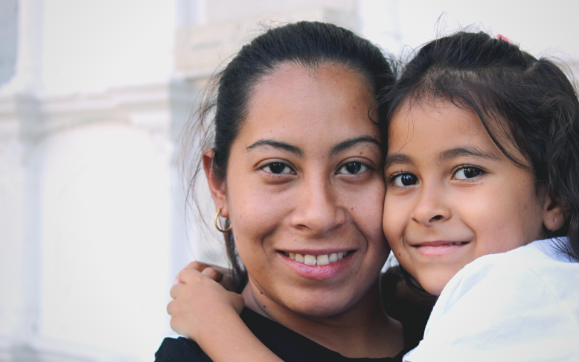Justice Center News
The Justice Center News blog features our advocacy on issues affecting low-income New Yorkers today and the latest CBJC happenings. For press releases, click here. For publications, click here.

Legal Clinic for the Homeless Secures the Basics for Shelter Residents During the Pandemic
by Lisa Pearlstein, Esq. and Kyara Martinez November 19, 2020
*Disclaimer: Please note pseudonyms are used to protect the identity of recipients of CBJC program services and to preserve client confidentiality.
Every person deserves food on their plate and a stable roof over their head. Unfortunately, hunger and homelessness are a reality for far too many people. In the United States, about 42 million people are at risk of suffering from hunger and more than 500,000, including children, are homeless each night.
As we observe this year’s National Hunger and Homelessness Awareness Week, the City Bar Justice Center’s Legal Clinic for the Homeless (LCH) continues its work in supporting and providing critical legal services to families and individuals living in homeless shelters in New York City. Most recently, the findings of a report by LCH documenting the devastating consequences homeless shelter residents face due to lack of essential technology, has fueled a citywide #Wifi4Homeless advocacy campaign urging the City to equip homeless shelters with Wi-Fi and internet ready devices so that they may obtain basic services. As highlighted in the following client stories, the shelter population has been disproportionately impacted by lack of internet access and food, housing, and economic insecurity with the pandemic further exacerbating these issues:
Alma waited for hours to use one of the only two available computers with internet access in her shelter to apply for Cash Assistance (CA) and Supplemental Nutrition Assistance Program benefits (SNAP). Alma and her five-year-old daughter, Mia, a cancer survivor, had escaped domestic violence and entered the NYC shelter system during the pandemic. The City denied their application for benefits because Alma had not submitted their birth certificates. Alma’s abuser had purposefully withheld the documents from her. Unsure of how to proceed, Alma turned to LCH for help. LCH Project Director, Lisa Pearlstein, prompted agency officials to search their database for the family’s birth records which they located. The agency reversed its denial and issued $1,351 in CA and SNAP to the household.
Jeremiah contracted COVID-19 and left his homeless shelter to recover. He quarantined in the apartment of a close friend. However, he worried that leaving the shelter and the loss of important paperwork would jeopardize his spot on the waitlist for supportive housing. Jeremiah reached out to the LCH team who assigned his case to a pro bono attorney. The pro bono attorney secured copies of the supportive housing approval from the City, assurances that Jeremiah would not lose his place on the waitlist and would continue receiving housing search assistance. This provided Jeremiah with the relief and peace of mind he needed as he recovered from the virus.
As the pandemic continues to unfold, the Legal Clinic for the Homeless will continue to address the immediate needs of families and individuals to help them secure basic resources including food, health care, housing and access to the internet for all shelter residents through advocacy and pro bono legal assistance.
Lisa Pearlstein, Esq. is the Director of the Legal Clinic for the Homeless. Kyara Martinez is the Project Coordinator.
Recent posts
-
June 11, 2024
NELP and Partners Serve 40 Small Business Owners For National Small Business Month
In honor of National Small Business Month 2024, the City Bar Justice Center’s Neighborhood Entrepreneur Law Proj...
Read more -
April 22, 2024
NELP and Partners Empower Small Businesses on Annual Financial Institution Pro Bono Day
The City Bar Justice Center’s Neighborhood Entrepreneur Law Project (NELP) was proud to participate in the 5th A...
Read more -
April 19, 2024
Statement of the Executive Director of the City Bar Justice Center Opposing IOLA Diversion and the Undermining of Complementary Public Service Programs
The City Bar Justice Center strongly opposes the inclusion in the FY2024-25 New York State budget of an eleventh-h...
Read more














